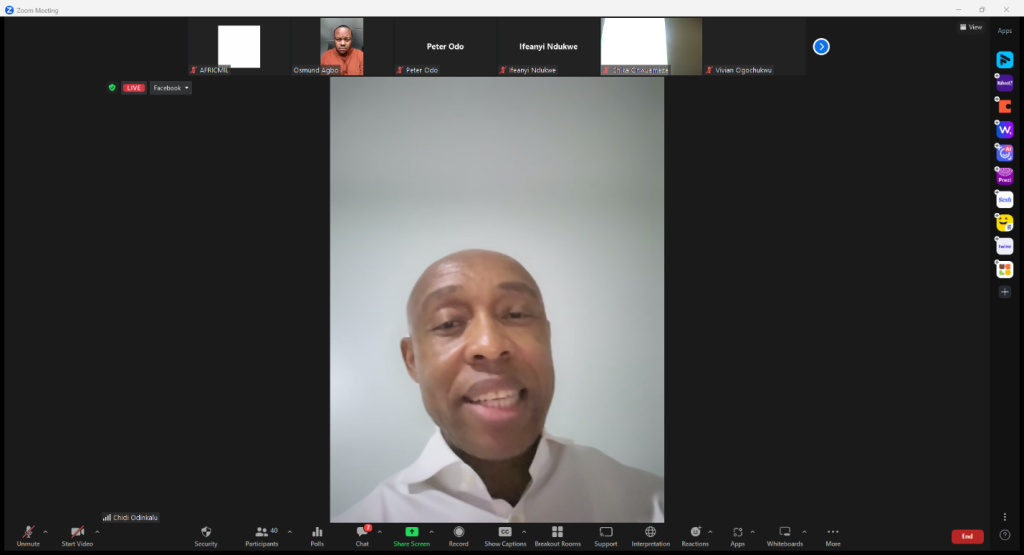Lawrence Nwimo, Awka
Former chairman of the National Human Rights Commission (NHC), Professor Chidi Odinkalu, has disclosed that killings and other security issues unsettling South-Easterners are not solely perpetrated by the Indigenous People of Biafra (IPOB).
Prof. Odinkalu’s view may have come in contrast with perceptions of many who believed that attacks and killings in the region are the results of the activities of the outlawed separatist group, IPOB.
According to him, organised crime and activities of different cult groups are largely responsible for the alarming killings and destruction of lives in the region.
Featuring as a keynote speaker at Ikengaonline’s virtual town hall meeting on Thursday, Odinkalu said the number of people that have died in cult-related crimes far outweighs any killings perpetrated by the so-called IPOB in the South-East.
Buttressing his point, Prof. Odinkalu said the South-East harbors the most sophisticated cult groups in the country.
“The Buccaneers, Eiyes, Vikings, all of them are the most sophisticated network of cults in the country and they are very murderous.
“For instance, go to Anambra Central, where IPOB cannot survive, there are loads of killings over the past month in Awka. Just two days ago, there were killings in Eke Awka.
“Over the past three weeks, killings in Awka have been going on. In one particular week, there were killings like 2-3 every day. Those were not IPOB killings but cult-based.
“Again, if you go to places like the Idemili area, particularly Idemili North, it is everyday and the people being buried are young men. These are inter-cult crises.”
Odinkalu who spoke on: “The South-East Insecurity Nexus: A Holistic View,” attributed the rise in crime and insecurity to the proliferation of small arms and drugs in the region.
According to him, such proliferation has given birth to organised crime that has held the region hostage.
“There is a political dimension to these organised crimes. Many politicians in a lot of locations have deployed arms into the situation for purposes of capturing power, and also traded in drugs, and used drugs and arms for these purposes which they have been unable to retrieve.
“Politicians have deployed guns. Some of the guns are produced in the region while some come from outside the country. Gun running, internal marketing of small arms, and light weapons are the order of the day.
“There is a huge drug market in a lot of locations in the South-East and these markets have externalities to it, including those in the diaspora,” he said.
Odinkalu also said that organised crime which is more sophisticated now poses an existential threat to the South-East than anything else.
He expressed fear that the matter of insecurity has gone beyond IPOB and ESN, noting that even if the two are removed from the equation, the South-East will still be insecure.
He said time had come for leaders and relevant stakeholders to focus on tactical and kinetic responses to tame the menace of criminal elements operating in the region.

